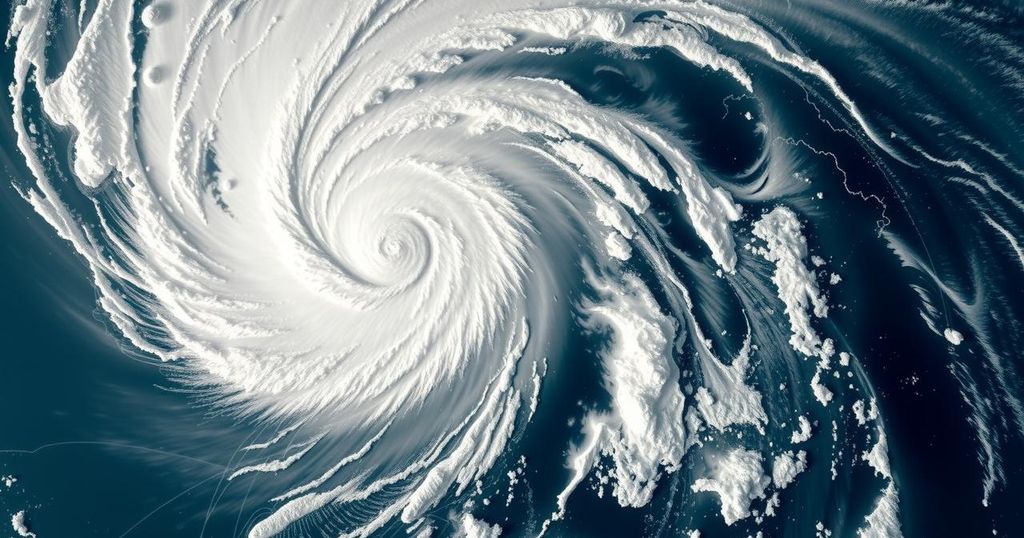Mayotte is currently threatened by Tropical Cyclone Dikeledi, following Cyclone Chido’s devastation. Dikeledi brought heavy rains and flooding, causing at least three deaths in Madagascar and displacing approximately 20,000 residents in Mayotte. Local infrastructure has suffered due to the storms, prompting urgent humanitarian responses and raising concerns over future weather events during the rainy season.
The region of Mayotte is facing significant challenges as Tropical Cyclone Dikeledi approaches, compounding the devastation already experienced from Cyclone Chido. Over the past weekend, this latest storm resulted in the death of at least three individuals in Madagascar due to heavy rains and flooding. Following its formation in the Southern Indian Ocean, Dikeledi intensified before making landfall in northern Madagascar, consequently impacting Mayotte, Mozambique, and the Comoros Islands.
According to a flash report by the European Civil Protection and Humanitarian Aid Operations (ECHO), approximately 20,000 residents of Mayotte have been displaced and required evacuation. Though Dikeledi had diminished in intensity as it reached Mayotte, local areas faced severe weather conditions, resulting in flash floods and landslides. Reports indicate that villages such as Mbouini, which had previously survived Cyclone Chido, were significantly affected by the recent rains.
Local residents expressed their anxiety regarding the continual threat posed by cyclones, with one individual stating they feel “traumatized” by the recent storms. The French Minister for Overseas Territories, Manuel Valls, remarked on the severe impact of the storm, stating, “Mayotte faced an intense tropical storm. The impact was violent.” Furthermore, Francois-Xavier Bieuville, the prefect of Mayotte, emphasized the ongoing instability of the area, noting the presence of strong winds and rainfall.
Looking ahead, the ECHO report predicts that Cyclone Dikeledi may intensify further as it progresses southward through the Mozambique Channel, potentially exacerbating the situation for affected areas. During the previous Cyclone Chido, the region suffered over 120 fatalities in Mozambique and at least 36 in Mayotte, highlighting the ongoing vulnerability of the population, many of whom reside in precarious housing conditions. Humanitarian response efforts are underway, with emergency assistance already being allocated in Madagascar to aid those impacted.
Tropical cyclones are common meteorological phenomena in the Indian Ocean region, often leading to devastating impacts on communities and infrastructure. Mayotte, a French overseas territory, has experienced two significant cyclones in rapid succession, raising concerns over the resilience of its population and infrastructure. The region, characterized by its susceptibility to severe weather and prevailing social challenges, is striving to cope with the immediate effects of these disasters while anticipating future weather events in the rainy season. Moreover, the international community is mobilizing humanitarian assistance to mitigate the fallout of these cyclones.
In conclusion, Mayotte is bracing for the impacts of Tropical Cyclone Dikeledi, which follows the destruction wrought by Cyclone Chido. With thousands displaced and significant challenges ahead, the region faces a critical time as it seeks to recover and prepare for further adverse weather. The attention of authorities and humanitarian agencies is crucial to ensure the safety and well-being of affected populations as they navigate this ongoing crisis.
Original Source: news.mongabay.com






